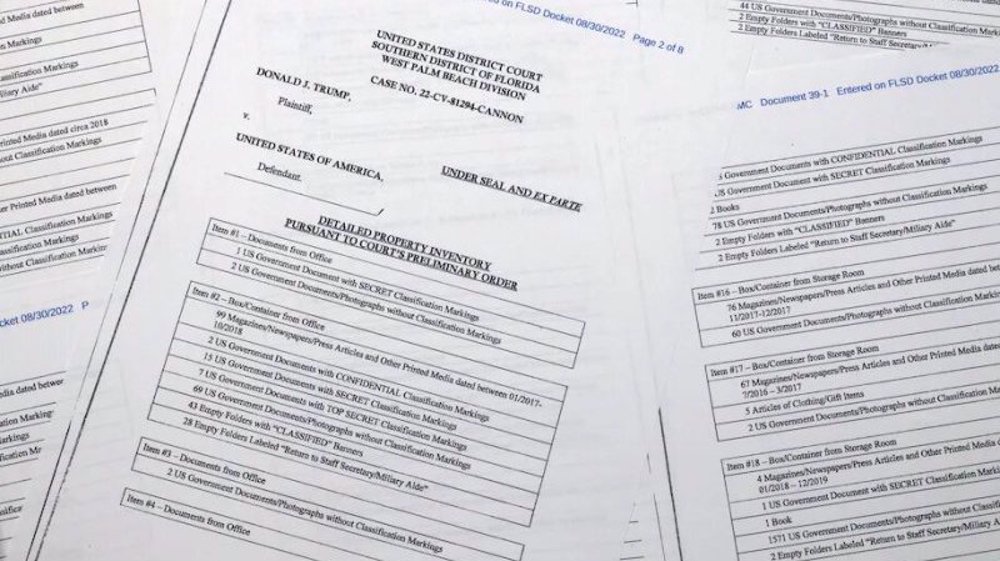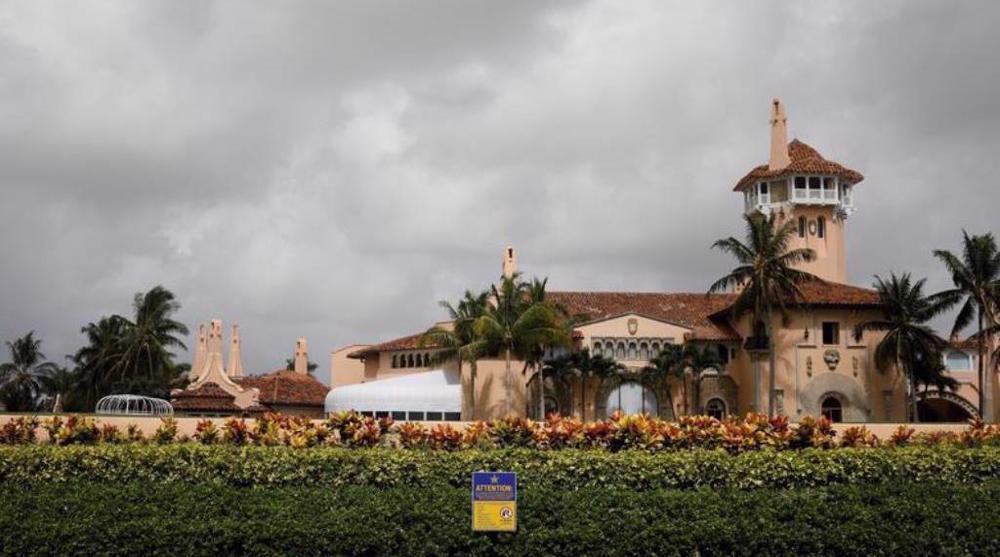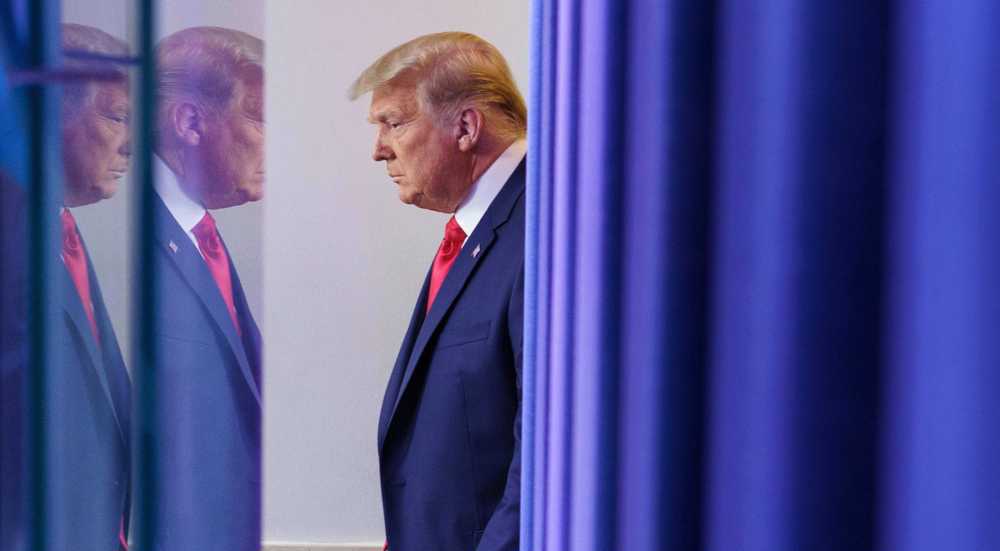Trump kept foreign nuclear secrets at Mar-A-Lago residence: Report
The US Federal Bureau of Investigation (FBI) found material on nuclear capabilities of an unnamed foreign country among the documents it seized from former US President Donald Trump’s Mar-a-Lago retreat in Florida, a report has revealed.
On August 8, FBI agents searched Trump’s residence in Palm Beach Florida and found classified documents not only in the storage room but also in his office, according to the Justice Department (DoJ), including three classified documents in an office desk.
The department is investigating the former president for removing government records from the White House after he vacated the office in January 2021 and keeping them at his Mar-a-Lago retreat, also known as the "Winter White House".
Following the search, Trump, who has denied any wrongdoing, denounced the move as a “raid” and called it an act of “prosecutorial misconduct,” saying the agents “broke into his safe” in his place while he was away at Trump Tower in New York.
On Tuesday, The Washington Post, citing unnamed people familiar with the matter, said in a report that a document describing a foreign country’s military defenses, including its nuclear capabilities, was discovered by FBI agents who searched the Mar-a-Lago residence and private club back in August.
The Post, however, did not name the foreign government involved.
Highlighting concerns among US intelligence officials regarding classified materials stashed in Trump’s Florida retreat, the report said the recovered records include documents even senior officials from the administration of President Joe Biden were not authorized to see.
“Some of the seized documents detail top-secret US operations so closely guarded that many senior national security officials are kept in the dark about them. Only the president, some members of his Cabinet or a near-Cabinet-level official could authorize other government officials to know details of these special-access programs,” the report said.
The Post said some of the recovered records were documents detailing top-secret US operations that require special clearances “on a need-to-know basis”, beyond a top-secret clearance.
However, “such documents were stored at Mar-a-Lago, with uncertain security, more than 18 months after Trump left the White House,” it said.
Following his departure from the White House, Trump returned hundreds of documents in January and June of this year.
However, after prosecutors said they learned from inside sources that more documents remained at Trump’s disposal at the retreat, Attorney General Merrick Garland authorized, and a federal magistrate approved the August search.
During the search, the FBI recovered more than 11,000 government documents and photographs, including over 100 marked as being classified. The content of these documents has not been revealed.
According to the report, the material on the nuclear-defense readiness of a foreign nation was among these 100-plus classified documents unearthed in a court-approved search in August.
In a previous report, the Washington Post said part of the search at Trump’s residence was to find any classified documents relating to nuclear weapons. The report, however, was denounced by Trump who claimed that the “nuclear weapons issue is a Hoax”, suggesting that FBI agents might have planted evidence against him.
Early this week, a federal judge granted Trump’s request for the appointment of a special master to review the documents seized in the FBI search, a move that is likely to delay the Justice Department’s criminal investigation.
The findings by the report on Tuesday are the latest twist in a weeks-long saga after FBI agents conducted the unprecedented search of Trump’s Florida home on August 8.
The search operation signals a major escalation in a host of investigations into the final stages of Trump’s presidency, while his legal problems continue on several other fronts, including a Congressional probe into the January 6, 2021 assault by Trump supporters on the US Capitol and accusations that Trump tried to influence Georgia's 2020 election results.
Pertinently, the penalties for the removal of official records include disqualification from holding any federal office in the future.
As Trump is widely believed to be preparing to run for the presidential election in 2024, that unusual penalty has raised the prospect that he might be legally barred from returning to the White House.
Pakistani military conducts airstrikes on militant hideouts in eastern Afghanistan
VIDEO | Displaced settlers frustrated
VIDEO | Christmas: Time for peace
Turkey will bury Syria’s Kurdish militia if they fail to disarm: Erdogan
VIDEO | Christmas in Syria: Hope amidst uncertainty
Israel attacks eastern Lebanon for first time since ceasefire
‘Christ under rubble’: Christians in Gaza mark another Christmas amid genocide
Iran’s president extends condolences to Azerbaijan’s Aliyev over plane crash












 This makes it easy to access the Press TV website
This makes it easy to access the Press TV website